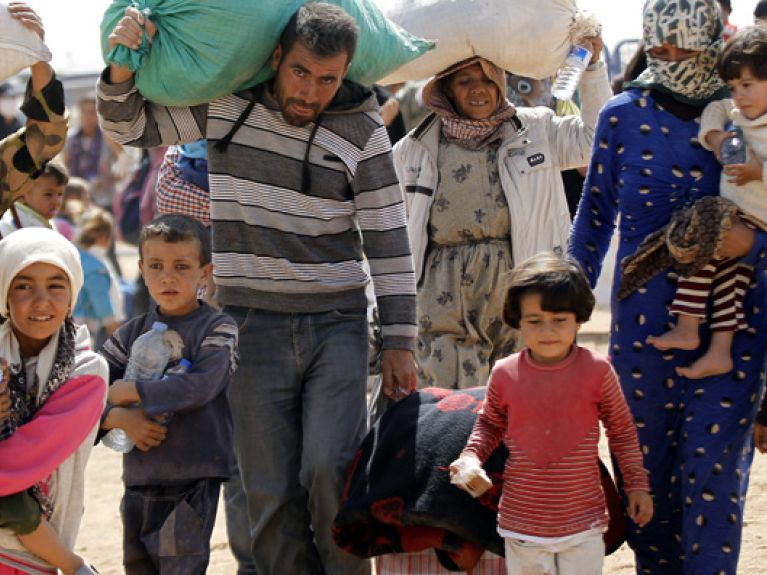Refugees in Germany
The fear of IS terrorist militia is driving tens of thousands out of Syria and Iraq. More and more people from the conflict areas are seeking asylum in Germany.

The United Nations Refugee Agency (UNHCR) speaks of a “humanitarian disaster” on the Syrian-Turkish border. Desperate, tens of thousands of men, women and children are fleeing their homes here every day. World-wide, there are now more than 51 million people trying to escape war and violence – more than ever since the Second World War. Most of the humanitarian aid is provided by regions neighbouring the crisis countries.
Many people, however, are also making their way to Germany, significantly more than in previous years. The majority of them come from Syria, Serbia and Eritrea. Between January and August 2014, 115,737 people officially came to Germany from crisis regions. This is 63 per cent more than in the same period last year. The Federal Ministry of the Interior expects this year a total of 200,000 applications for asylum. According to the UNHCR, Germany receives most of refugees. The Federal Office for Migration and Refugees speaks of an “accelerating dynamics”. Media are already reporting about overcrowded processing points for asylum seekers. Municipalities have no alternative but to improvise: emergency shelters equipped with cots are being set up in tents, gymnasiums and garages. The authorities cannot keep up with the processing of asylum applications.
Changes in the asylum law
The Federal Government expects relief from a revision of the asylum law, which the German Federal Council has also approved. Serbia, Macedonia and Bosnia-Herzegovina are to be declared safe countries of origin. People who come to Germany from these Balkan countries will generally no longer be granted asylum. The reform has provoked controversy in Germany. The Federal Ministry of the Interior has emphasized that its object is a reduction of asylum applications from nationals of these states and so an overall acceleration of processing. In addition, the changes also provide for an improvement of the living conditions of asylum seekers. Human rights organizations such as Amnesty International and Pro Asyl think that Germany should do more: federal, state and local governments should consider the reception and integration of asylum seekers as an enduring social task. “Given the many trouble spots around the world, it should go without saying that Europe will take significantly more refugees than before”, stressed Selmin Çaliskan, Secretary General of Amnesty in Germany on the occasion of national Refugee Day.
Refugee Day, 26 September
© www.deutschland.de

